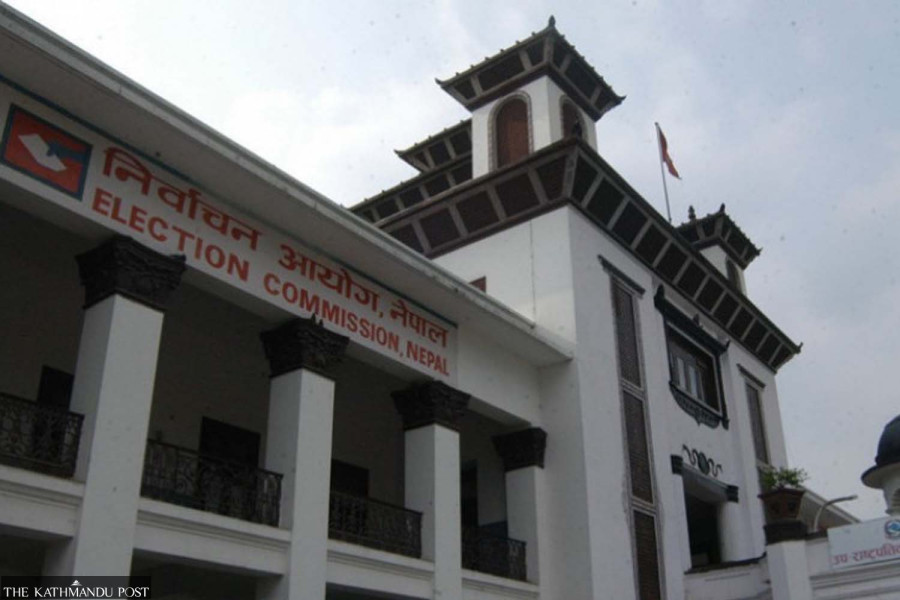National
Election Commission mum as parties hold ‘informal’ rallies
Code of conduct says parties and candidates cannot begin electioneering until November 3.
Tika R Pradhan
With less than a month remaining for the federal and provincial elections, the Election Commission is gradually succumbing to pressure from political parties and has been turning a blind eye to the ongoing blatant violations of the election code of conduct.
Although the commission has been ordering individual candidates to furnish clarifications for violating the code provisions, it has not been taking any action when such violators are political parties.
Also, the commission has already allowed candidates to conduct door-to-door campaigns, which were restricted by the code until November 3.
Currently, almost all candidates are focusing on such campaigns throughout the nation. The commission, under pressure from parties, has decided to allow such ‘low-key’ and ‘informal’ campaigns.
“We have allowed candidates to conduct informal door-to-door campaigns due to repeated requests from political parties,” said Surya Prasad Aryal, assistant spokesperson of the Election Commission.
But the parties have gone a step ahead in violating the code and started organising election rallies, which are officially not allowed until November 3, even as the commission remains silent.
Clause 13 (1Y) of the election code of conduct clearly states that candidates can organise marches, rallies and corner meetings, broadcast and publish their campaign advertisements in the media and organise door-to-door campaigns only from 17 days prior to the election day. This means the parties and candidates must wait until November 3 before they hit the campaign trail.
The code of conduct has been in force since September 28.
When asked about the ongoing disregard for the codes, Election Commission officials said the campaigning period was shortened to 17 days as suggested by political parties, which asked the commission to find ways to reduce election spending.
But observers and several politicians slammed the code as impractical after it turned out that the parties and candidates needed to wait for almost three weeks since their candidacies were confirmed by the commission. The commission had published the final list of first-past-the-post [FPTP] candidates on October 12.
On October 19, the Election Commission issued a seven-point directive for the political parties and candidates contesting the polls to abide by the code of conduct, in vain.
The ruling coalition of Nepali Congress, CPN (Maoist Centre), CPN (Unified Socialist) and Rastriya Janamorcha organised their latest election rally in Kathmandu on Monday after concluding similar rallies in Pokhara, Janakpur, Biratnagar, Surkhet, Dhangadhi and Butwal. The ruling coalition started holding rallies on October 21.
“The parties had earlier informed us that they would make their rallies as modest as possible, but that has not been happening,” said Aryal, assistant spokesperson of the commission, adding, “I don’t know how the commission will deal with these violations.”




 13.12°C Kathmandu
13.12°C Kathmandu














